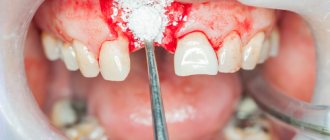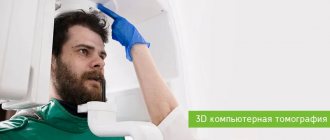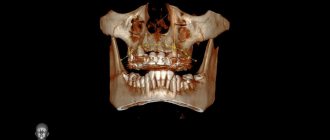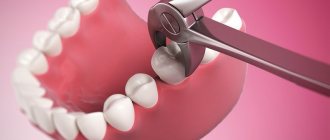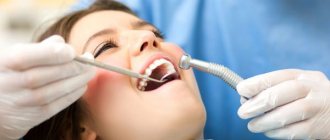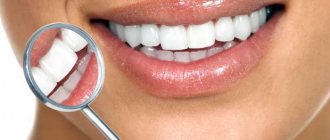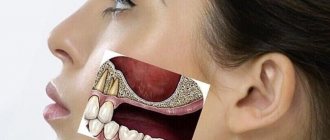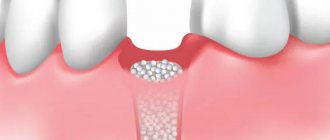Any surgical intervention is serious and the implantation of artificial tooth roots is no exception. The procedure requires attentiveness and concentration not only from the attending physician, but also from the patient. Proper preparation will reduce the likelihood of unpleasant and undesirable consequences. Detailed tips and recommendations will help you understand what you need to know before dental implantation, how to behave and what to prepare for.
Before surgery, it is necessary to carry out professional oral hygiene.
If the operation is performed with an anesthesiologist, you must come with an accompanying person, or the operation will be cancelled.
Recommendations for surgical treatment
After surgery, you may experience pain, which will go away as the tissue heals. Postoperative swelling or hematoma can also occur in areas adjacent to the surgical site, which is a natural consequence of surgery. There may be a slight increase in body temperature.
Please follow our recommendations!
Diagnosis of cataracts
Modern equipment makes it possible to detect disturbances in the structure of the lens even at the initial stages of cataract development. Also, the patient himself should notice characteristic signs - narrowing of the visual field, loss of light sensitivity, visual clouding of the intraocular media, interfering with good vision. Cataracts most often develop in older people, along with other pathologies of the visual tract, especially presbyopia, a natural age-related farsightedness.
The main method for diagnosing cataracts is biomicroscopy, which involves examining the ocular media at multiple magnification under a special slit lamp. Such an examination allows you to determine the size and degree of cataracts, make predictions regarding the speed of spread of the process and the urgency of the operation.
It is also important to determine the degree of visual acuity, the preservation of the peripheral vision field, and to examine the fundus of the eye for changes in the neurovascular structures of the eye. An appointment with an ophthalmologist after 40 years of age must be accompanied by tonometry - measuring intraocular pressure to diagnose glaucoma.
Optical coherence tomography is a method for accurately determining the state of preservation of intraocular structures. Next, modeling and selection of a suitable intraocular lens are used.
Before surgery
- Prepare an ice pack at home.
- On the day of surgery, eat a light meal 2-3 hours before your scheduled time.
- The day before surgery, the consumption of alcoholic beverages is strictly prohibited.
- Be sure to inform your dentist about all the individual characteristics of your body and any allergic reactions, in order to accurately select an anesthetic that is safe for you.
- Visit the toilet before surgery.
- It is better to come to the operation in loose clothes without a collar.
After operation
— To avoid severe swelling and bleeding during the first 24 hours after surgery, it is necessary to apply an ice pack to the cheek on the side of the operation for 15-20 minutes with breaks of 30-40 minutes.
- Rinsing your mouth when bleeding is unacceptable!
— After sinus lift surgery, you should not drink through a straw, blow your nose vigorously, or puff out your cheeks.
- To reduce the likelihood of nosebleeds (after upper jaw surgery) and reduce post-operative swelling, you should sleep with your head elevated (add an extra pillow) for several days after surgery.
— It is not recommended to use tobacco products 1 week before and 2 weeks after surgery.
— It is prohibited to drive a car on the day of surgery with premedication.
- It is not recommended to eat until the anesthetic wears off. In the first days after surgery, it is recommended to eat soft, non-hot foods.
— It is not recommended to drink alcohol, coffee, or strong tea to avoid the negative effects of these drinks on blood circulation and wound healing.
Additional Tips
Avoid lifting heavy objects, bending over, playing sports, or taking hot baths for 5 to 7 days after surgery.
Within a few days, performance and the ability to drive may be reduced.
Remember to take medications prescribed by your dental surgeon after surgery.
We kindly ask you!
Appear for examination and removal of stitches 5-7 days after surgery, in agreement with your surgeon. You must immediately notify your surgeon or clinic administrator of any changes in your health.
Recommendations for caring for dental implants
The service life of the implant depends on:
- The correctness of the surgical and prosthetic stages carried out in the dental clinic.
- The patient's compliance with the recommendations given by the dentist immediately in the postoperative period and the period after implant prosthetics.
- Careful hygienic care of the “implant-crown” structure.
- Blood supply to bone tissue and gums in the area of implantation. (Smoking cigars and cigarettes has a very, very negative effect on peripheral blood circulation, which can even interfere with implant implantation.!!!)
What to consider before planning implantation
When deciding to undergo implantation, you should take your choice of clinic and doctor seriously. The success of the operation, the duration of treatment and the service life of the implants depend on the actions of the patient, but the professionalism of the clinic team plays a decisive role. It is better to consider 2-3 centers at once to compare and choose the best one. When visiting the clinic, you should pay attention to:
- Location. Choose a dentist that is easy for you to get to.
- Equipment. The clinic must be well equipped (for diagnosis, treatment, operations). Plus - the presence of a separate surgical unit and its own dental laboratory.
- Documentation. By agreeing to implantation, the patient signs an agreement with the clinic. Pay attention to the list of services that are included in the cost of implantation, guarantees, price, payment terms (should not change from the moment the contract is concluded). Discuss warranty periods and warranty cases.
- Price. Study the prices of several clinics. When you see a temptingly low price for implantation, you don’t need to be seduced. An operation involving the installation of high-quality implants, performed by a highly qualified implantologist, cannot be cheap.
- Reviews. Study opinions on clinic websites, forums, ask friends or relatives.
- Doctor's qualifications. The implantologist must have a diploma confirming higher education and advanced training certificates. It is better if the operation is performed by a maxillofacial surgeon.
- Comfort. Communication with an implantologist is long-term—the level of trust and approach are important. Choose a specialist whom you can trust with your health.
It is worth focusing on the predicted results of the operation. The doctor must choose the optimal solution to your problem. A professional does not sacrifice smile aesthetics for quality or vice versa, so do not settle for conflicting results.
Oral hygiene
Regardless of the size or number of implants, they must be cared for as if they were regular teeth. Brush and floss your dental implants twice a day. Use special fluffy dental floss (for example, Oral-B superfloss or ultrafloss).
When brushing your teeth, pay special attention to the back teeth and between teeth. Use a soft or medium-hard brush. In addition, use an irrigator for additional deep cleaning of the interdental spaces with water irrigation.
There are special brushes that can be used to clean interdental spaces - dental brushes. Ask your dentist about them - in some cases they are not recommended.
Visit your dental hygienist twice a year; they are the only ones who can clean your implants as thoroughly as necessary. Regular visits to the dentist are very important. Your dentist will check the condition of your gums, jaws and implants.
Smoking is bad for your health and for dental implants, too. To have a good prognosis for the lifespan of your implants, it would be a good idea if you stopped smoking.
3D planning for dental implant installation
The results of a CT scan and other measurements of the jaw are entered into a special computer program to visually reconstruct the jaw.
The implantologist calculates the location for the implants and draws up a detailed surgical plan. In difficult situations, the doctor models the jaw visually and then creates a 3D model of the patient’s jaw (using a 3D printer). The model is made of special plastic that imitates the jaw with the patient’s bone density. Using a lithographic model, the implantologist reproduces the operation, studies the structure of the jaw and the nuances of installing implants.
Eating
Avoid chewing hard candy, ice, or other hard foods (such as hard chocolate or dry fish) as they may loosen or break the abutment screw.
Avoid foods such as caramel or toffee, as they may stick to the crown and cause the abutment screw to loosen.
Do not open bottles or crack nuts with your teeth for the same reasons.
Wear protective sports mouth guards when participating in sports and avoid direct blows to the face.
Refrain from grinding your teeth. If creaking occurs unintentionally or during sleep (bruxism), notify your dentist and he will make you a thin night guard.
The length of their service depends on the quality and regularity of care for implants.
Before and after implantation
Sanitation at home
Those people who take care of their health will be required to follow all the dentist’s instructions and carry out a set of hygiene procedures.
These measures can be carried out at home, but no more. Oral hygiene is important for dental health, but in addition, it is the prevention of dental diseases. It should be remembered that full oral sanitation cannot be performed at home. After all, there is no special equipment for this at home, and this research is distinguished by its complexity.
Before surgery:
Prepare several days off after the date of the planned operation.
Do not smoke or reduce the number of cigarettes you smoke.
If you are sick on the eve of the operation, please notify the implantologist.
Ask your implantologist about the medications you will need immediately after surgery.
Patients suffering from compensated diabetes mellitus must follow a strict diet 2 weeks before surgery and 2 weeks after it.
Get a good night's sleep the night before surgery.
Make sure you are accompanied if you plan to undergo anesthesia, sedation or a complex operation, do not plan to be behind the wheel.
If you have herpetic rashes on the mucous membrane, the operation should be rescheduled.
Mandatory tests
The doctor individually informs each patient what tests are taken before implantation, which are indicated for all patients at risk. For healthy patients, X-ray diagnosis is often sufficient, provided there are no chronic diseases.
Below is a list of tests that a specialist prescribes without fail:
- General blood analysis
- General urine analysis
- Blood chemistry
- Blood sugar test (included in biochemistry)
- ESR
- HIV
- Syphilis
- Hepatitis B, C
- Rh factor, blood group
The list changes at the discretion of the doctor depending on the patient’s health. Based on the results of the research, the specialist may delay the operation.
Relative contraindications to implantation include:
- Exacerbations of chronic diseases
- Exacerbation of infectious diseases
- Increased blood sugar
- Myocardial infarction less than 6 months before surgery
- Hormonal disorders
- The need for bone grafting (to be decided individually, in some cases it is possible to do bone grafting and implantation in one visit)
- Pregnancy and lactation
- Lack of oral sanitation
- Taking medications that affect blood pressure, blood clotting, etc.
Among these factors, the doctor also makes an individual decision about the possibility of surgery.
There are a number of contraindications that completely exclude surgical intervention.
Absolute contraindications:
- Hemophilia
- Presence of malignant tumors
- Mental illness
- Allergy to anesthetics
- Diabetes mellitus type 1
- Immune system disorders
- Severe pathologies of the cardiovascular system
For all conditions, there is a certain list of tests and corresponding symptoms, according to which the surgeon determines to delay implantation or even choose a different tactic for treating the patient.
After operation:
If you have had dental implants, you may experience some of the typical discomforts associated with any type of dental surgery. These may include:
- Swelling of the gums and face.
- Gum injury.
- Mobility of adjacent teeth.
- Pain at the implantation site.
- Minor bleeding.
- Bruises and bruises.
You may need painkillers and antibiotics. Follow the recommendations of the implantologist.
What must be observed after implantation:
- Brush your teeth with a soft brush before removing sutures
- Eat soft foods for 5-7 days. Do not eat hot, spicy or salty foods.
- Starting from the third day after surgery until the sutures are removed, you should rinse your mouth with a chlorhexidine solution twice a day (after brushing your teeth).
- Do not overheat in the sun or in a sauna.
- Do not engage in active sports.
- Do not smoke or reduce the number of cigarettes you smoke.
- Do not fly on an airplane, do not swim, do not dive for 2 weeks (especially important after sinus lift surgery).
- Do not blow your nose or sneeze with your mouth open (especially important after sinus lift surgery).
- If swelling, discomfort or other symptoms increase within a few days after surgery, or the temperature rises, contact your implant surgeon.
- After tooth extraction
- If you have had a tooth removed, you must take care of your oral cavity. By following certain recommendations, you will feel better and healing time will speed up.
How teeth and gums are prepared for extraction, prosthetics or implantation
Like any other operation, tooth extraction, installation of dentures or implants requires careful preparation. Therapeutic preparation of the oral cavity for further manipulations - prosthetics, installation of braces or implantation, includes:
- Initial examination and appointment of all necessary studies (X-ray, CT scan possible, clinical tests, etc.)
- Sanitation of the mouth. At this stage, all foci of inflammation are identified and eliminated, caries and its complications are treated, and the health of the gums and mucous membrane is restored. If necessary, depulpation of abutment teeth can be performed before prosthetics. All manipulations in our clinic are carried out in accordance with international protocols - using sterile disposable instruments and a dental dam to isolate teeth.
- Professional teeth cleaning - removal of subgingival and supragingival stones, followed by polishing and fluoridation.
The last point is no less important than correct diagnosis and treatment of teeth or gums. Because as a result, it is the removal of stone that helps relieve excess inflammation of the gums, reduce bad breath and prevent negative consequences that may interfere with maintaining oral health after any dental procedures.
Stopping bleeding:
To control bleeding, it is necessary to bite down on a gauze pad placed by the dentist in the oral cavity. The pressure promotes the formation of a blood clot in the socket. If you have heavy bleeding that has not stopped within an hour of tooth extraction, you should bite into a regular tea bag. Tannin in tea helps in the formation of blood clots. Hold the tampon or tea bag until the bleeding stops.
Additionally, cool the extraction area, apply a cold compress to the face in the area of tooth extraction for 10-15 minutes. at one o'clock. A slight bleeding on the first day after removal is normal.
Rehabilitation stages
When carrying out reorganization, it is necessary to determine all its stages. Below is an approximate step-by-step plan:
- Appointment with a doctor. At this stage, the dentist performs a visual inspection and at the same time identifies all the measures necessary for sanitation.
- General photograph of the teeth. This image should not only cover individual or diseased areas of the teeth, but also all tissues, as well as the entire masticatory-jaw apparatus. Therefore, it is best to use a 3 D image.
- Professional oral cleaning.
- Treatment plan. For this, the help of other specialists, for example, a surgeon, orthopedist or orthodontist, can be used.
- Own treatment. This stage is inconvenient because it takes a lot of time.
- Final measures. Sometimes in this case the patient is registered for medical examination.
- Doctor's report. This stage involves a long-term work schedule, as well as preventive inspections.
- Visit the clinic and follow all points of the plan.



